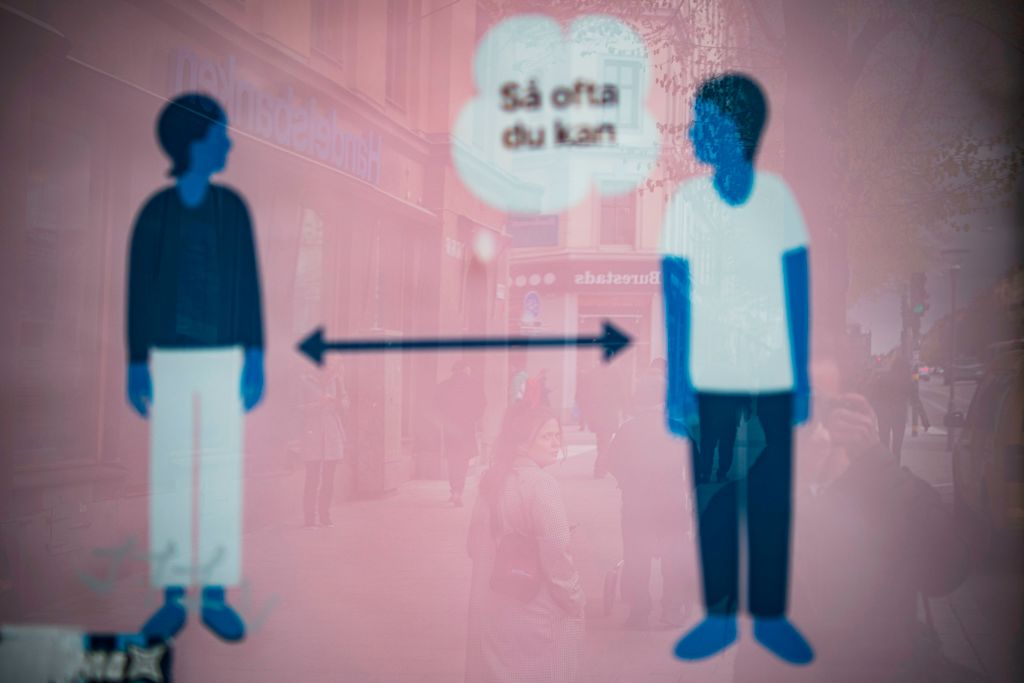Mathias Döpfner is that still rare thing — an outspoken German. I have known him slightly for many years and admire his brain and boldness: a long time ago he even came close to buying the Telegraph Group. The 6ft 7in CEO of Axel Springer has just issued a challenge to Europe and particularly to his own country. In an article published on Sunday, he told Germany that it must stop dithering and choose. The coronavirus, he says, has brought out the great danger the Chinese Communist party presents to the West. If Germany does not lead the EU to side with the United States (and with post-Brexit Britain, Australia etc) European businesses will be snapped up by post-COVID China and Europe could ‘suffer a similar fate to Africa, on a gradual descent towards becoming a Chinese colony’. The West should not have let China into the WTO in 2001: ‘The big mistake was to expose democratic market economies to a non-democratic state capitalism that exploits easier trading and competitive conditions without subjecting itself to the same rules.’ China’s ‘highly perfected system of digital surveillance…translates the perversions of the KGB and Stasi into the 21st century.’ Döpfner warns: ‘If Germany decides to expand its 5G infrastructure with Huawei, that will place an enormous strain on transatlantic relations. It would be a turning point, as America could no longer trust Germany.’ That sentence should chill British readers. It’s already happening here.
Although I lean to the side of the Swedish experiment in herd immunity rather than the attempt to close down entire countries, one must remember that differing national circumstances and characters do matter. Sweden has a population of 10.33 million and a population density of 58.2 people per square mile. The United Kingdom has a population of 66.65 million and a density of 701.1 people per square mile. Sweden was therefore taking a much, much lower risk of being overwhelmed by the virus than would the United Kingdom if it had followed the same policy. Besides, Swedes are (for the most part) Swedish. Culturally and ethnically homogeneous, they tend to conform. We in overcrowded modern Britain, not so much. A comparison comes to mind. In the late 1970s, the shadow chancellor, Geoffrey Howe, got very excited by the German policy of ‘Concerted Action’ — arrangements by which management and trade unions got together to work out ‘a united national commitment to sensible policies’. This idea enraged Margaret Thatcher, the newish leader, who saw it as a block on change. ‘Also,’ she added, thinking of British trade unions, ‘we should recognize that this German talking shop works because it consists of Germans.’
Our neighbor, the much-respected local undertaker, conducted twice as many funerals in April as in the same month last year. One might be tempted to say ‘It’s an ill wind…’, but in fact it has been grim, both from a professional and a human point of view. ‘We have had,’ he says — with a double meaning he notices only after he has said it — ‘to think outside the box.’ Coffins are in short supply, ‘unless people want the willow or bamboo’. With no new traditional wooden ones available until early June, he has had to get in cardboard versions as a back-up. The firm is not allowed to provide many of the aspects in which it takes pride — the embalming, the viewing, the limousines, the dignified bearing of the coffin in and out of a crowded church, all of which help comfort families. Instead, it has to take enormous pains to protect its own staff. The coronavirus does linger on the bodies of the recently dead, and when you have to lift the head of the deceased, you are dangerously close to the nostrils and the mouth, which may expel air. The men handling the body therefore have to wear full PPE (often hard to obtain and sometimes defective). Because diagnosis is so uncertain, they have to wear it with all corpses, whether or not the dead person had COVID-19. To reduce the risk further, they have to adapt incontinence pads to cover the corpse’s head and face. Not all hospitals put their Covid dead in body-bags. The whole thing is ‘very frightening,’ he says, ‘because you keep asking yourself, “Have I got it?”.’ So far, all his staff are well. He is proud of their stoicism. Most of the bereaved also behave well; but although he would love churches to open once more, he thinks it would be very hard to maintain distancing at a church funeral of any size. Many elderly people attend funerals and cannot manage alone. I have never met a man less pleased to find his business in demand. Which is to his credit. Please clap for undertakers too.
The undertaker, like so many people, is hampered in his work by not really knowing who died of COVID-19 and who died of something else. Doctors, who are normally permitted to state cause of death only if they have seen the deceased in the last 14 days of life, are now free, under emergency rules, to extend that period to 28 days. This makes the cause of death much harder to judge.
I wonder if poor Antonia Staats, lover of Prof Neil Ferguson, was driven a bit mad by the lockdown he preached but did not practice. Ms Staats is an anti-Brexit protester and eco-activist. Protest is a way of life for such people, and at present they are frustrated. This is a boon to ordinary citizens, but a cause of nervous breakdown in the XR classes.
It is still considered a discourtesy for a prime minister to broadcast a formal announcement before making it in parliament. This practice was viewed with much more disfavor in the 1940s. Yet Churchill’s public announcement of the German surrender was broadcast first, at 3 p.m. on VE Day 1945. He then delivered it again in the Commons a few minutes later. The lack of protest may be explained by his ad-lib that the House had been ‘the strongest foundation for waging war that has ever been seen in the whole of our long history’.
This article was originally published in
The Spectator’s UK magazine. Subscribe to the US edition here.

























